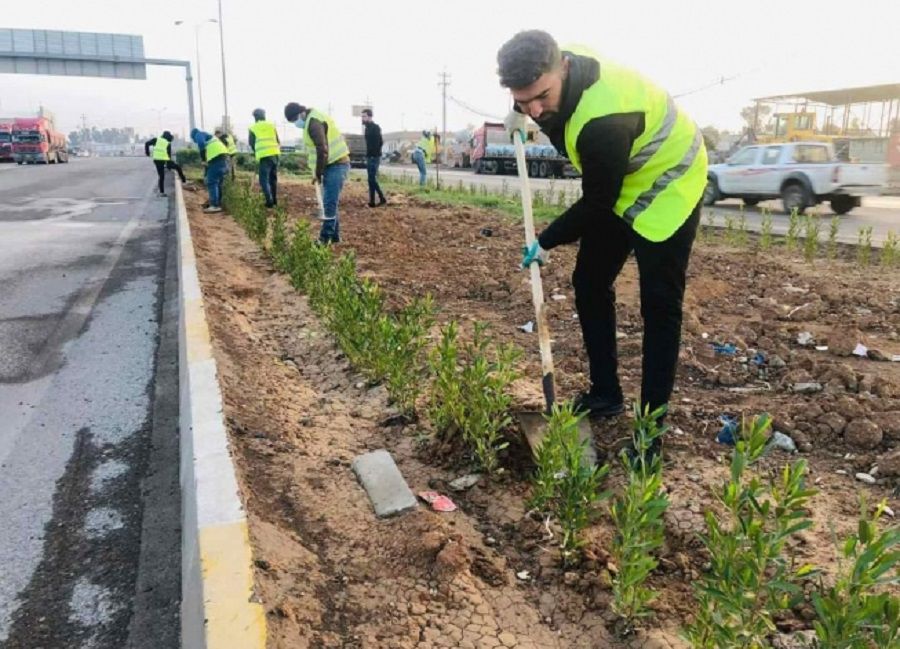Kurdistan Region advances climate change adaptation through programs tackling water, agriculture, health, waste, tourism, and environmental preservation efforts
Head of Kurdistan Environmental Protection Authority: We have worked on flood risk mitigation and ensuring adequate water supplies during drought periods, as well as groundwater recharge to maintain aquifer levels.
The Head of the Kurdistan Region’s Environmental Protection Authority discusses their preparations for addressing drought and global climate change, stating that a high-level delegation from the Kurdistan Region participated in COP29 where they prepared a comprehensive program covering all sectors related to environment, climate, water, and other relevant sectors.
Engineer Abdul Rahman Sidiq, Head of the Kurdistan Region’s Environmental Protection Authority, told The Kurdish Globe: “This year, like previous years, the Kurdistan Region participated with a broad delegation in the Conference of Parties (COP29), which was the annual meeting of countries that have signed the Paris Agreement. At this conference, work was done on implementing the provisions and recommendations within the United Nations Framework Convention on Climate Change. The Kurdistan Region is part of the solution to global problems, such as climate change, and strengthening Kurdistan Region’s position in formulating decisions and recommendations in the field of climate change, and embodying the environmental commitments included in the agenda of the ninth cabinet of the Kurdistan Regional Government.”
Engineer Sidiq also stated: “The sectors in which the Kurdistan Region has measures for adaptation to climate change impacts, through strengthening national capabilities in facing climate change effects on different sectors, especially those that are more sensitive and affected,” are as follows:
First – (Water Resources)
Water resources and sustainable investment in groundwater, preserving it for future generations, water purification, reducing water waste, and innovating new techniques in monitoring and observing groundwater resources and determining their type, along with the need to maintain overall groundwater hydrogenous balance, construction of many dams and ground reservoirs for water collection, flood risk mitigation, ensuring adequate water supplies during drought periods, and recharge to maintain aquifer-bearing layers.
Second – (Agriculture Sector)
Halting soil degradation, pasture, and vegetation cover deterioration, working towards their rehabilitation, improving land management methods, and relying on smart and conservative farming, especially in agriculture and forestry.
Third – (Health Sector)
Increasing the health sector’s adaptive capacity to address climate change through providing necessary and comprehensive support for health institutions and infrastructure to strengthen national response.
Fourth – (Natural Systems and Forests)
Protecting the ecological system by increasing adaptive capacity to climate change impacts and working with nature-based climate solutions.
Fifth – (Sewage and Waste Sector)
Supporting integrated waste management, strengthening and improving its management and recycling for energy production from waste, in addition to climate, recurring events and risks, and slow-onset events that are consequences of climate change, and increasing infrastructure capacity of government institutions for prediction and improving preparedness through risk reduction.
Sixth – (Higher Education, Scientific Research, Science and Technology)
Relying on scientific research and technological development is a fundamental basis for success through joint work between national sectors to achieve objectives and the energy sector, increasing the energy sector’s capacity to address climate change through supporting adaptation programs and working simultaneously with reduction axes to strengthen national response in confronting climate changes.
Seventh – (Natural and Cultural Tourism)
Increasing the capacity of the tourism sector and world heritage, promoting it as one of the most important sources of economic revenue diversification in the country, and protecting world heritage sites and indigenous populations from climate change threats while promoting sustainable environmental tourism.
The Kurdish Globe

